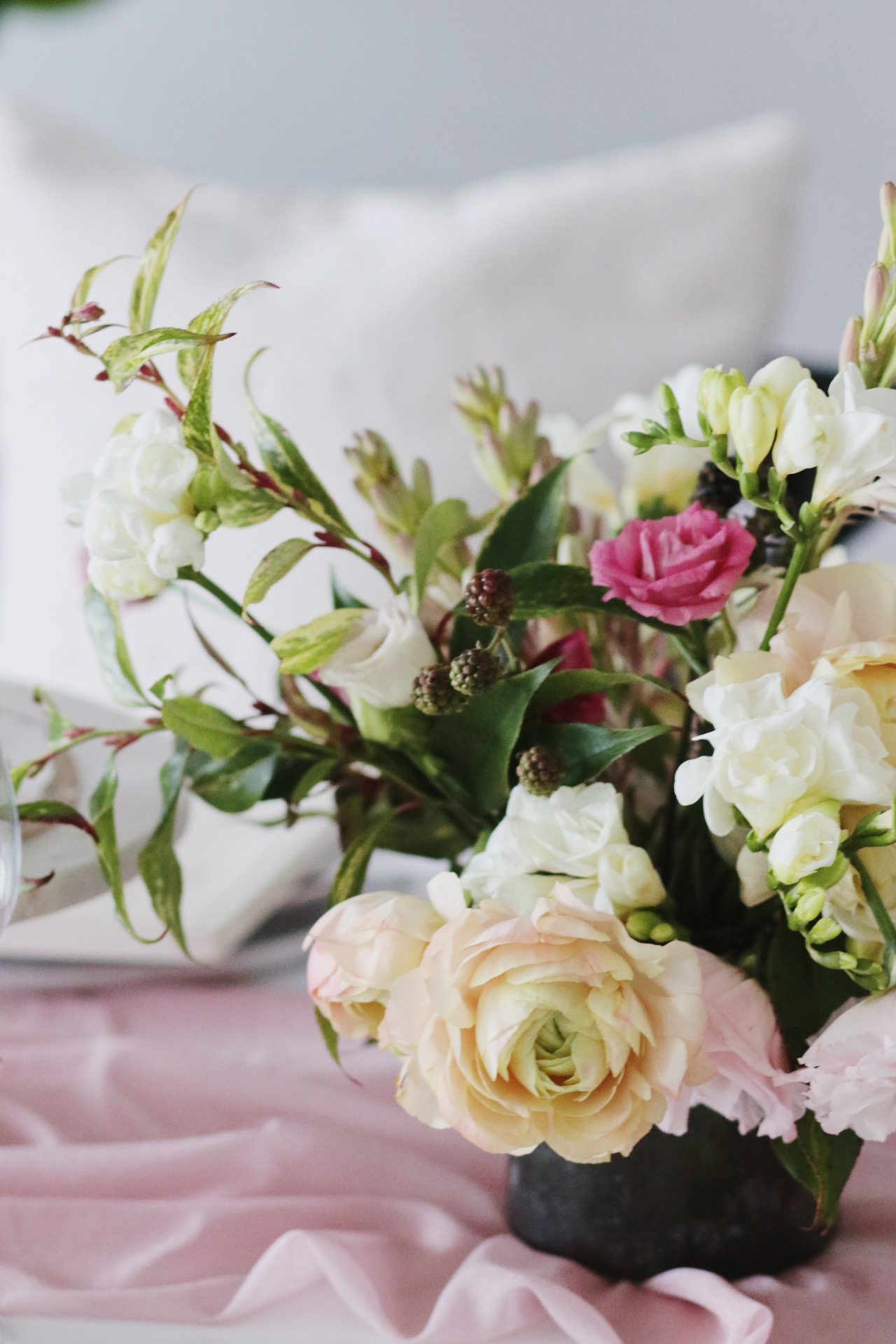
Okay, confession: I first published this list of Passover quotes all the way back in January. Crazy, no? But as I’ve mentioned, oh, 84 times before, Passover is, without a doubt, my favorite holiday. Even thinking about it gives me the happiest feeling. When I tell you that I’ve been looking forward to posting about Pesach here for months, I’m not exaggerating. I was thinking about Passover as I pieced together last year’s Hanukkah tablescape in October. And my Rosh Hashanah table in July.
(Clearly, my seasonal confusion does not discriminate.)
The point is, I’ve been feeling that familiar tug of Passover Excitement since, well…last Passover. And so it came to pass that this list of Passover quotes was born a wee bit early. If I had to choose a favorite, I’d probably go with Micaela Ezra‘s words about the spiritual concept of ayin, or Marge Piercy’s incredibly beautiful, nostalgia-inducing description of her family’s cozy Seder. “After we have finished the haggadah, we sit around the table stuffed and happy and tell jokes... Finally we have coffee and people slowly drift out into the night…” Something about those words just feels like home to me.
But every single one of these excerpts, sayings, poems, and lyrics are worth skimming through. There are Passover quotes here about family, Passover quotes about faith, Passover quotes about freedom, Passover quotes about…every aspect of this holiday, really. Many are also long enough to work equally well as print-outs for your Seder table or haggadah additions.
No matter which way you use them, I’d love to hear which words resonated with you the most. Drop me a line on Instagram to let me know—or just say hi! P.S. Check out the rest of my Passover posts right over here.
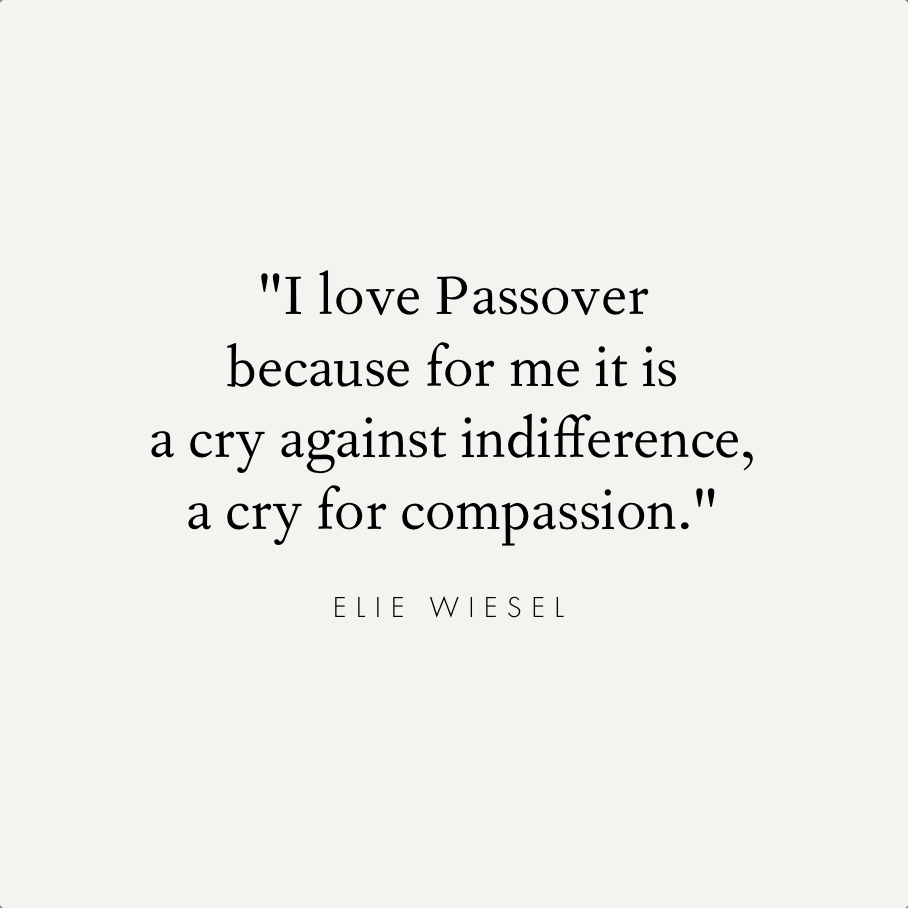
“I love Passover because for me it is a cry against indifference, a cry for compassion.” —Elie Wiesel
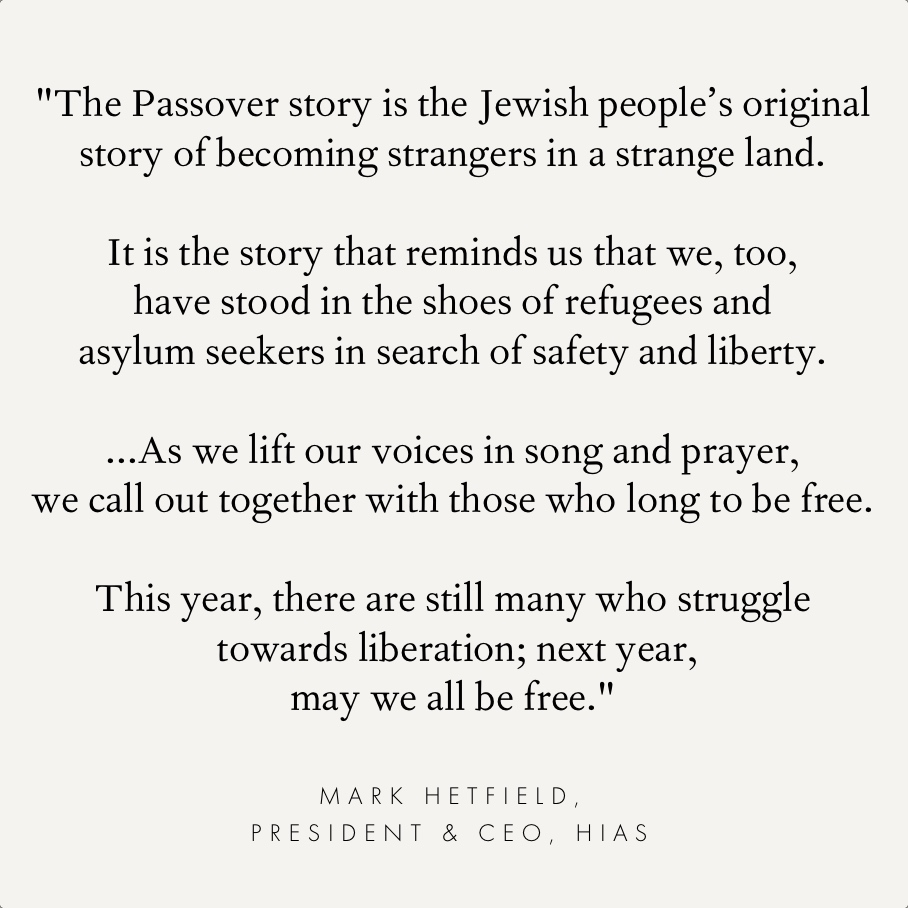
“The Passover story is the Jewish people’s original story of becoming
strangers in a strange land. It is the story that reminds us that we, too, have
stood in the shoes of refugees and asylum seekers in search of safety and
liberty. As we lift our voices in song and prayer, we call out together with those who long to be free. This year, there are still many who struggle towards liberation; next year, may we all be free.” —Mark Hetfield, President & CEO, HIAS
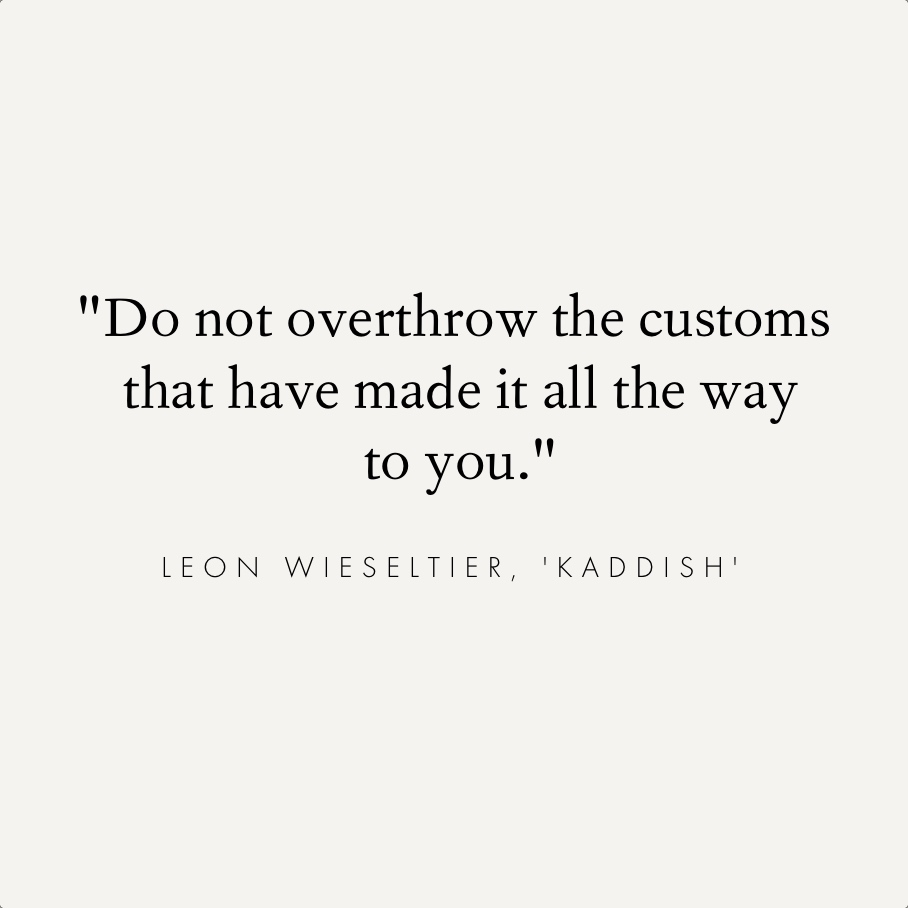
“Do not overthrow the customs that have made it all the way to you.” —Leon Wieseltier, Kaddish
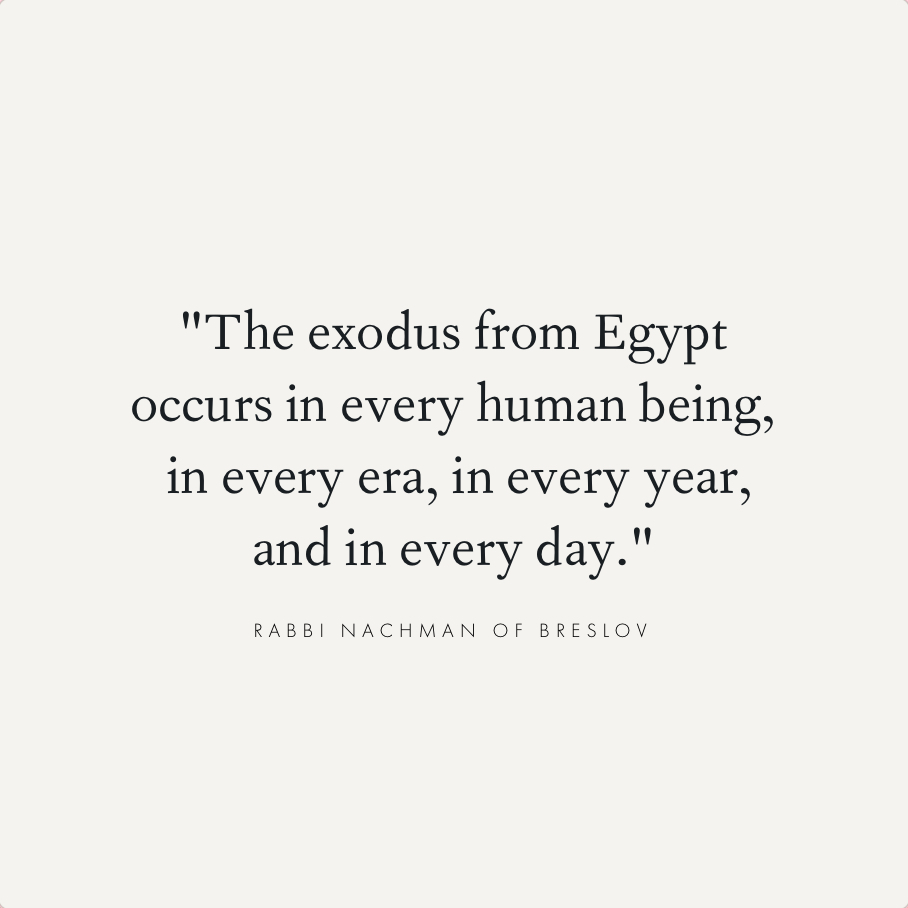
“The exodus from Egypt occurs in every human being, in every era, in every year, and in every day.” —Rabbi Nachman of Breslov
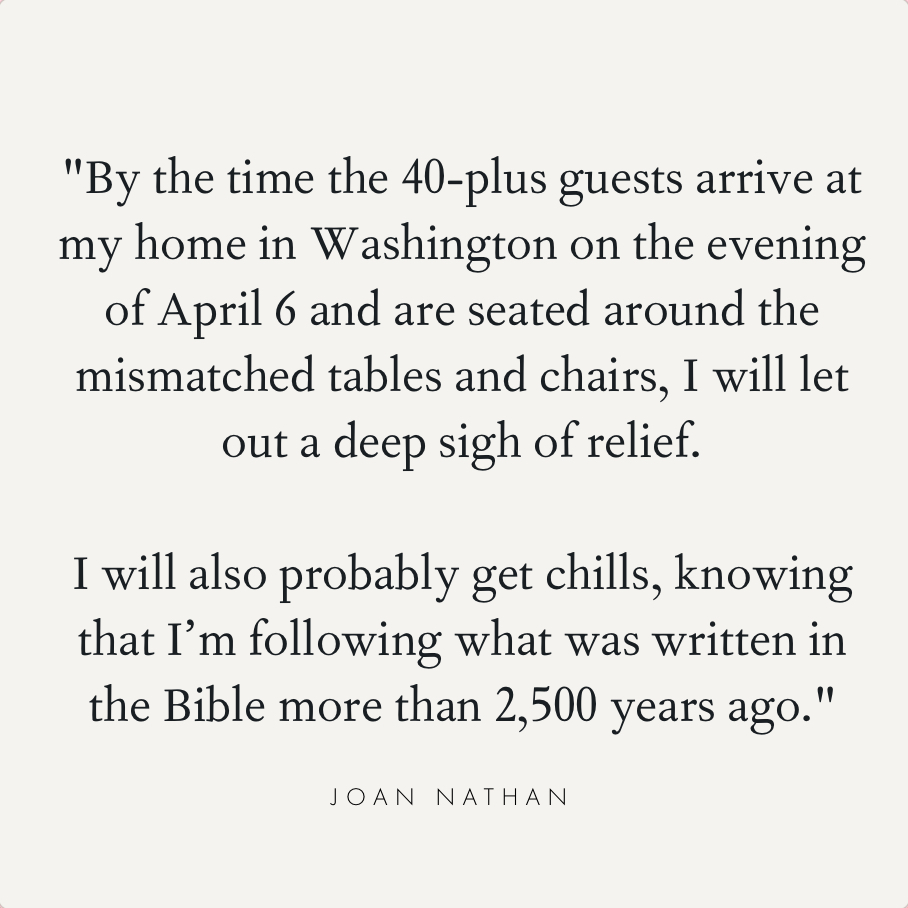
“By the time the 40-plus guests arrive at my home in Washington on the evening of April 6 and are seated around the mismatched tables and chairs, I will let out a deep sigh of relief. I will also probably get chills, knowing that I’m following what was written in the Bible more than 2,500 years ago.” —Joan Nathan
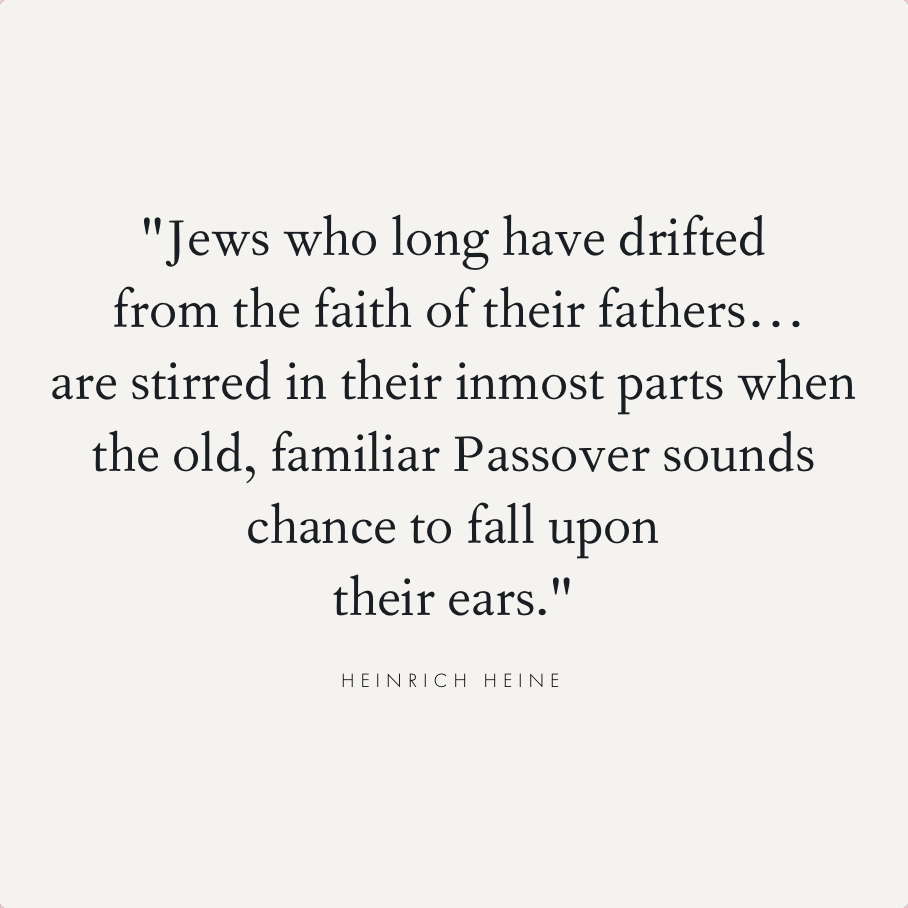
“Jews who long have drifted from the faith of their fathers… are stirred in their inmost parts when the old, familiar Passover sounds chance to fall upon their ears.” —Heinrich Heine, The Rabbi of Bacharach
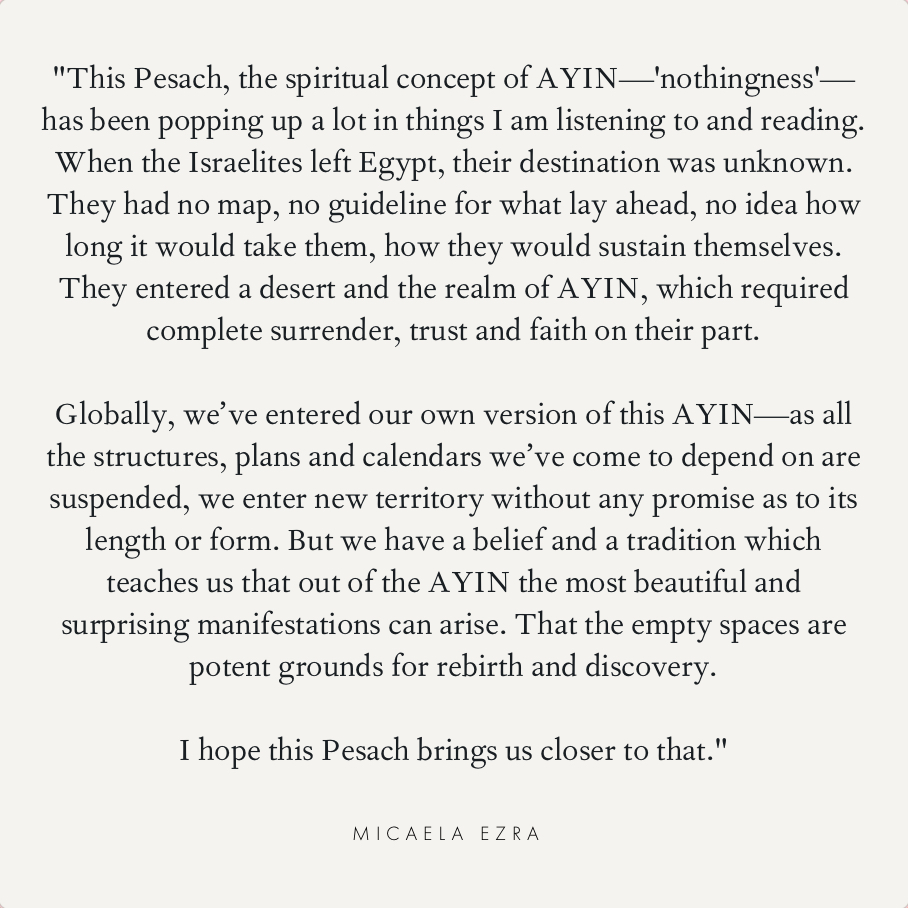
“This Pesach the spiritual concept of AYIN—’nothingness’—has been popping up a lot in things I am listening to and reading. When the Israelites left Egypt, their destination was unknown. They had no map, no guideline for what lay ahead, no idea how long it would take them, how they would sustain themselves. They entered a desert and the realm of AYIN, which required complete surrender, trust and faith on their part. Globally, we’ve entered our own version of this AYIN—as all the structures, plans and calendars we’ve come to depend on are suspended, we enter new territory without any promise as to its length or form. But we have a belief and a tradition which teaches us that out of the AYIN the most beautiful and surprising manifestations can arise. That the empty spaces are potent grounds for rebirth and discovery. I hope this Pesach brings us closer to that.” —Micaela Ezra
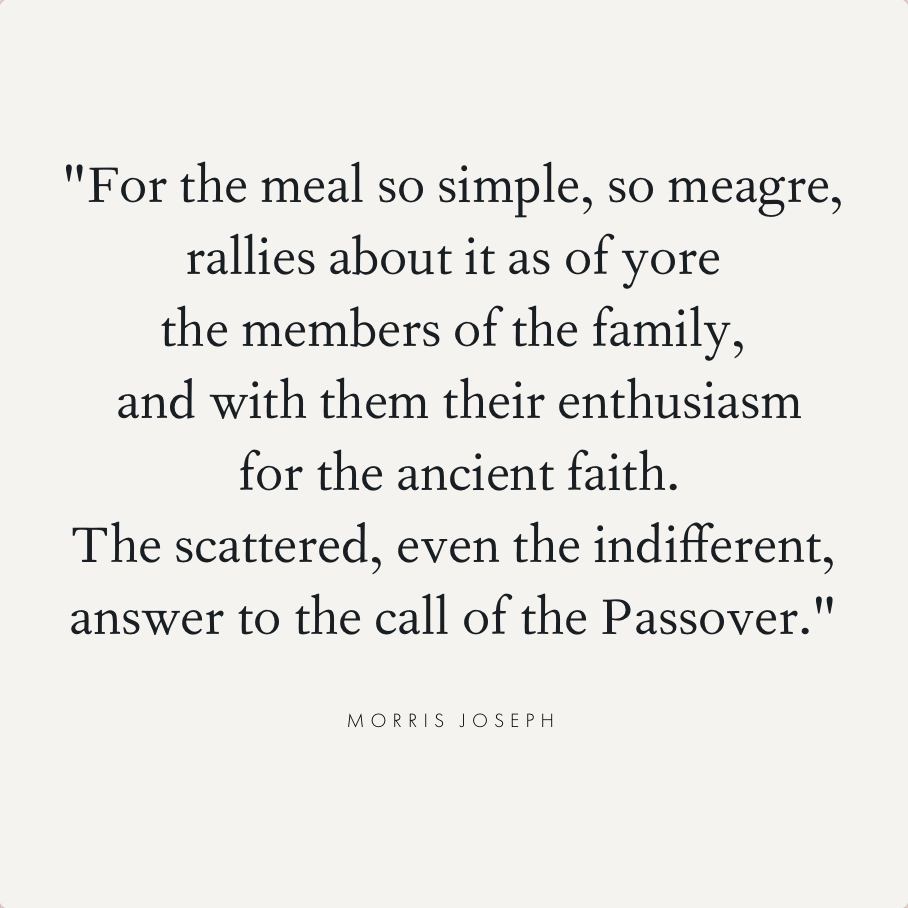
“For the meal so simple, so meagre, rallies about it as of yore the members of the family, and with them their enthusiasm for the ancient faith. The scattered, even the indifferent, answer to the call of the Passover.” —Morris Joseph, Passover: Judaism as Creed and Life
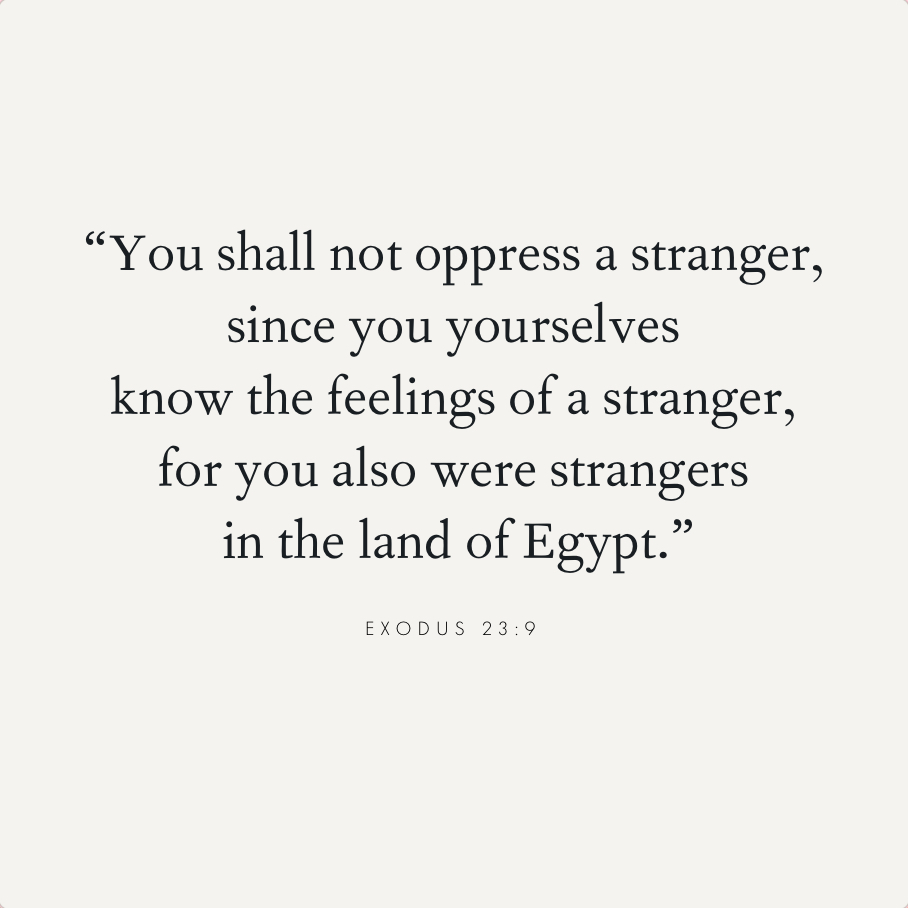
“You shall not oppress a stranger, since you yourselves know the feelings of a stranger, for you also were strangers in the land of Egypt.” —Exodus 23:9
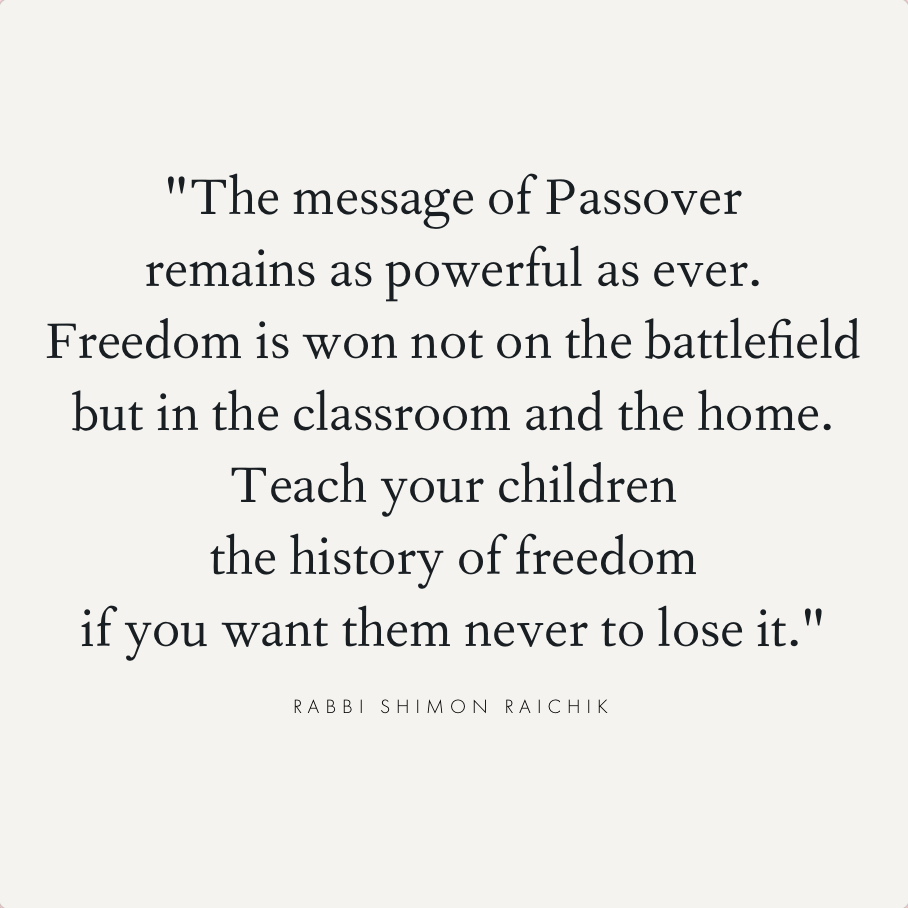
“The message of Passover remains as powerful as ever. Freedom is won not on the battlefield but in the classroom and the home. Teach your children the history of freedom if you want them never to lose it.” — Rabbi Shimon Raichik
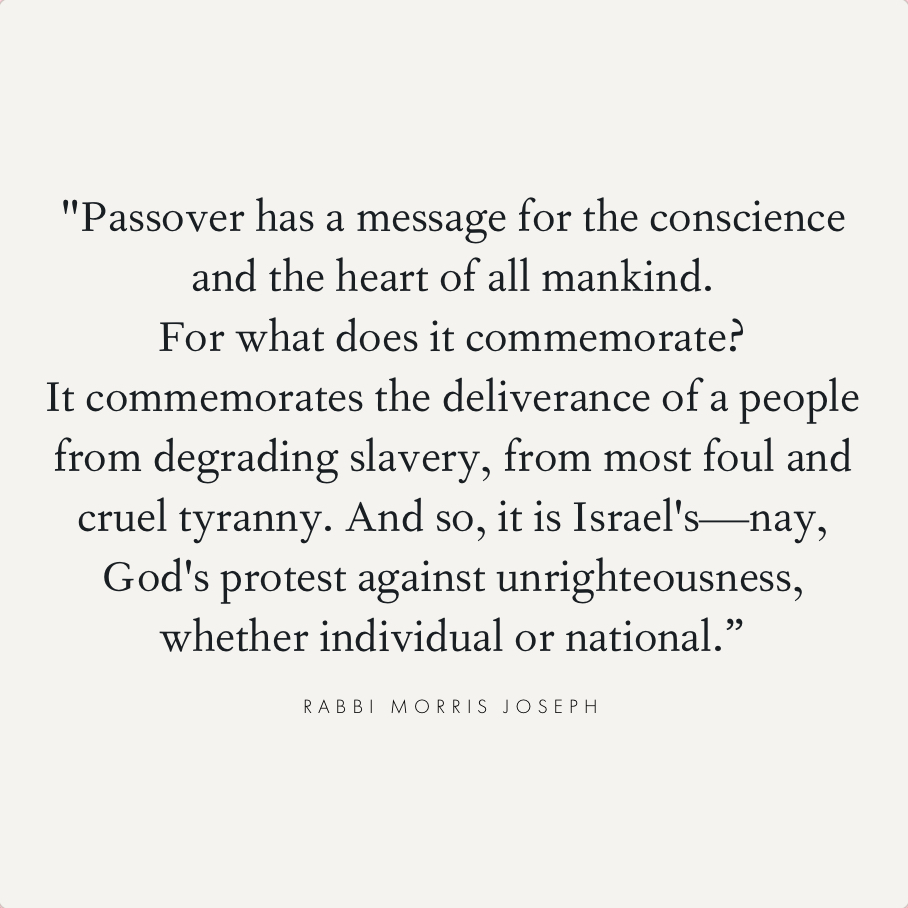
“Passover has a message for the conscience and the heart of all mankind. For what does it commemorate? It commemorates the deliverance of a people from degrading slavery, from most foul and cruel tyranny. And so, it is Israel’s—nay, God’s protest against unrighteousness, whether individual or national.” — Rabbi Morris Joseph
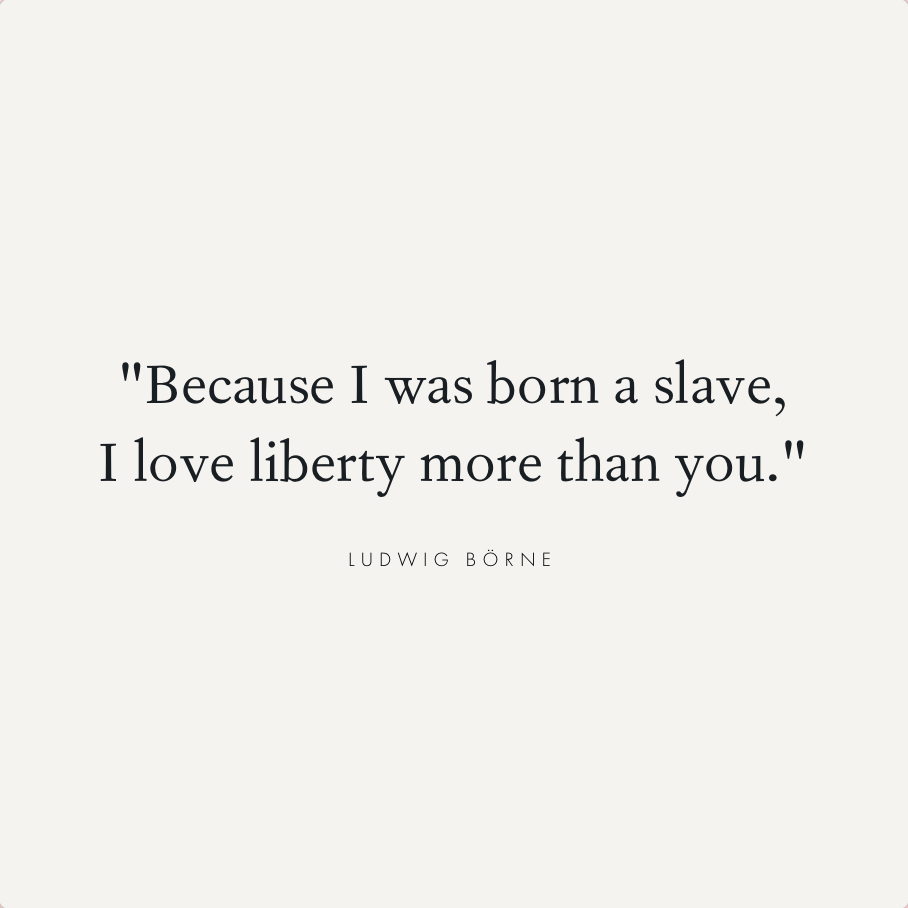
“Because I was born a slave, I love liberty more than you.” —Ludwig Börne
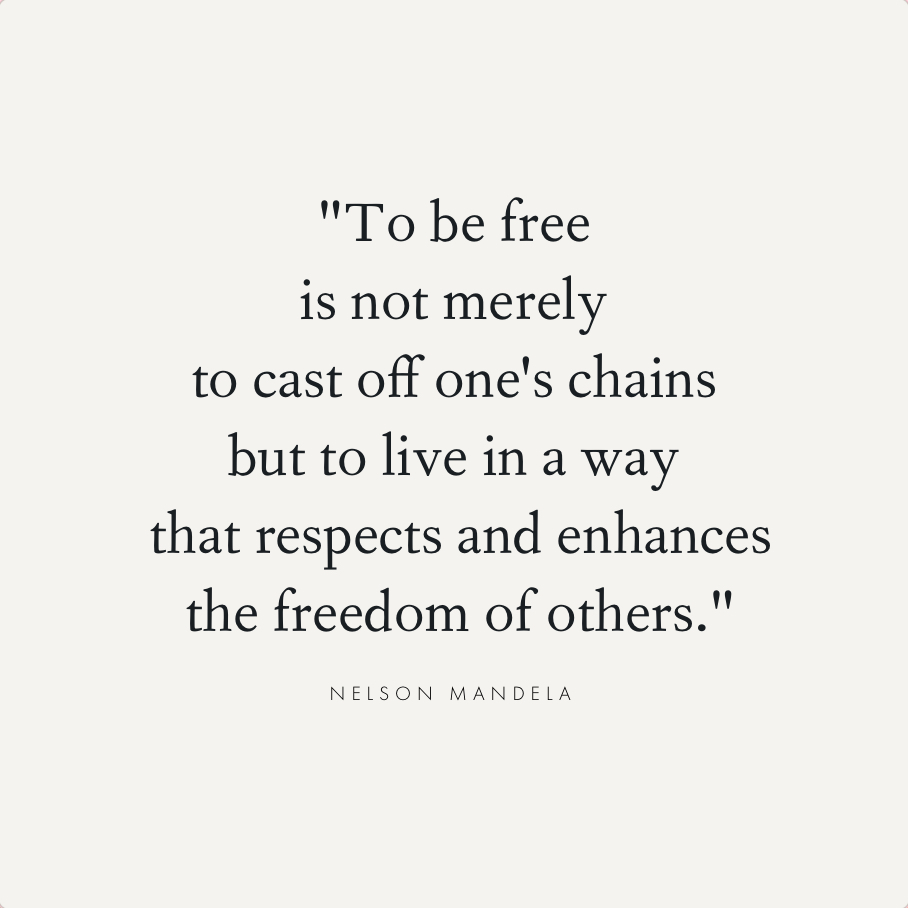
“To be free is not merely to cast off one’s chains but to live in a way that respects and enhances the freedom of others.” Nelson Mandela
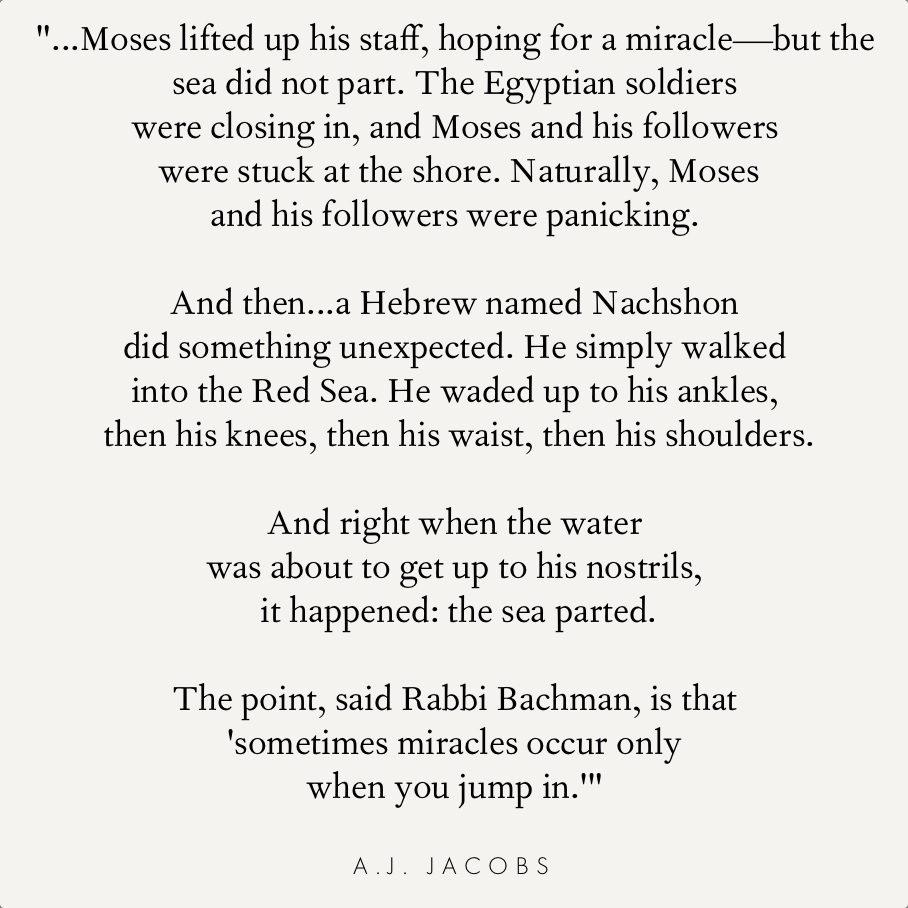
“…The story is a legend from the Midrash, and it goes like this: When Moses was fleeing the Egyptians, he arrived at the Red Sea with his thousands of followers. Moses lifted up his staff, hoping for a miracle—but the sea did not part. The Egyptian soldiers were closing in, and Moses and his followers were stuck at the shore. It was only a matter of time before every one of them would be slaughtered. Naturally, Moses and his followers
were panicking. No one knew what to do. And then, just before the Egyptian army caught up to them, a Hebrew named Nachshon did something unexpected. He simply walked into the Red Sea. He waded up to his ankles, then his knees, then his waist, then his shoulders. And right when the water was about to get up to his nostrils, it happened: the sea parted. The point, said Rabbi Bachman, is that ‘sometimes miracles occur only when you jump in.'” —A.J. Jacobs, foreword to My Jewish Year by Abigail Pogrebin
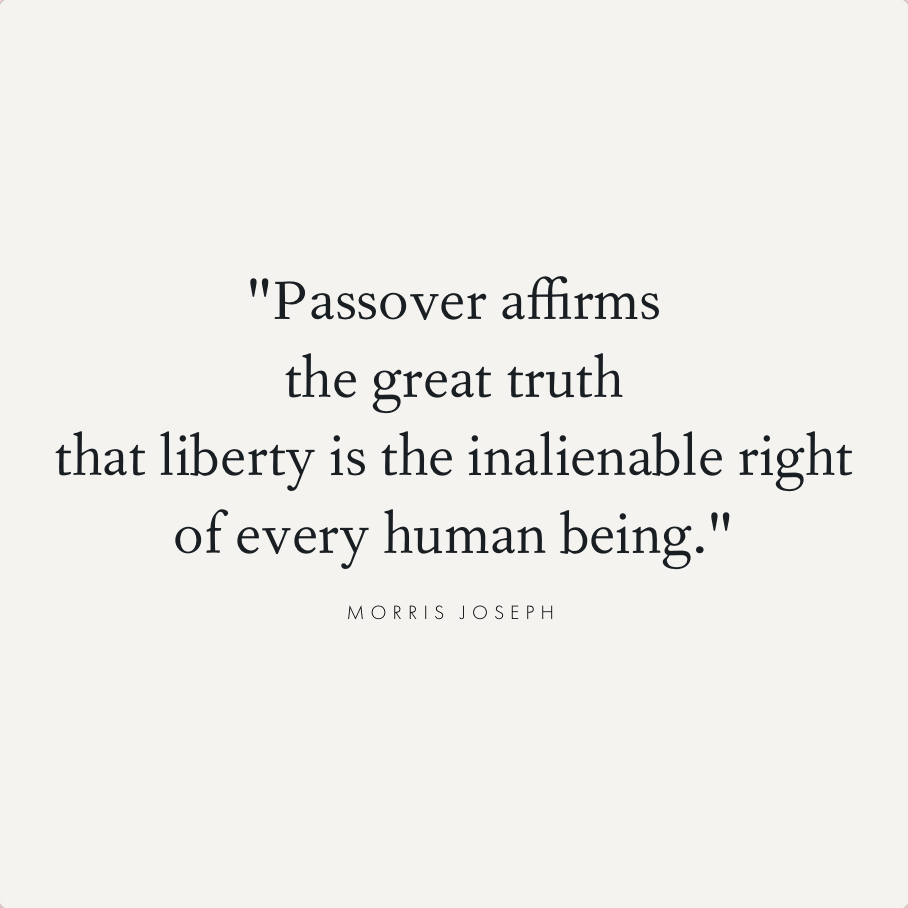
“Passover affirms the great truth that liberty is the inalienable right of every human being.” – Morris Joseph
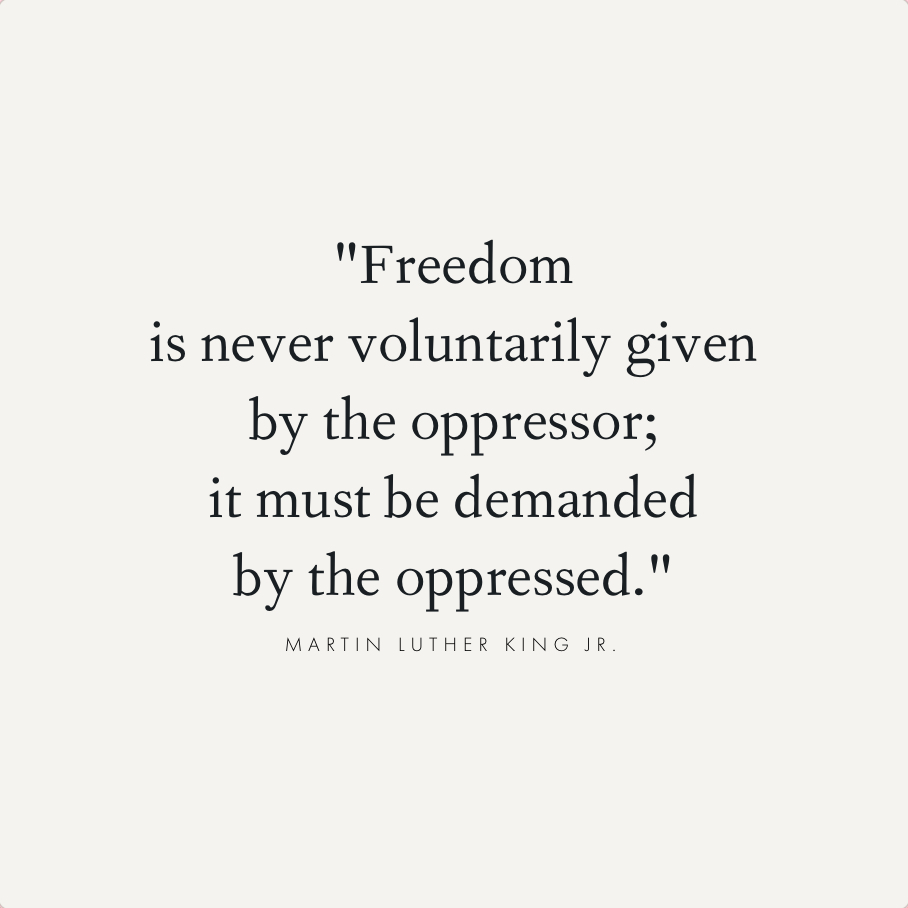
“Freedom is never voluntarily given by the oppressor; it must be demanded by the oppressed.” Dr. Martin Luther King Jr
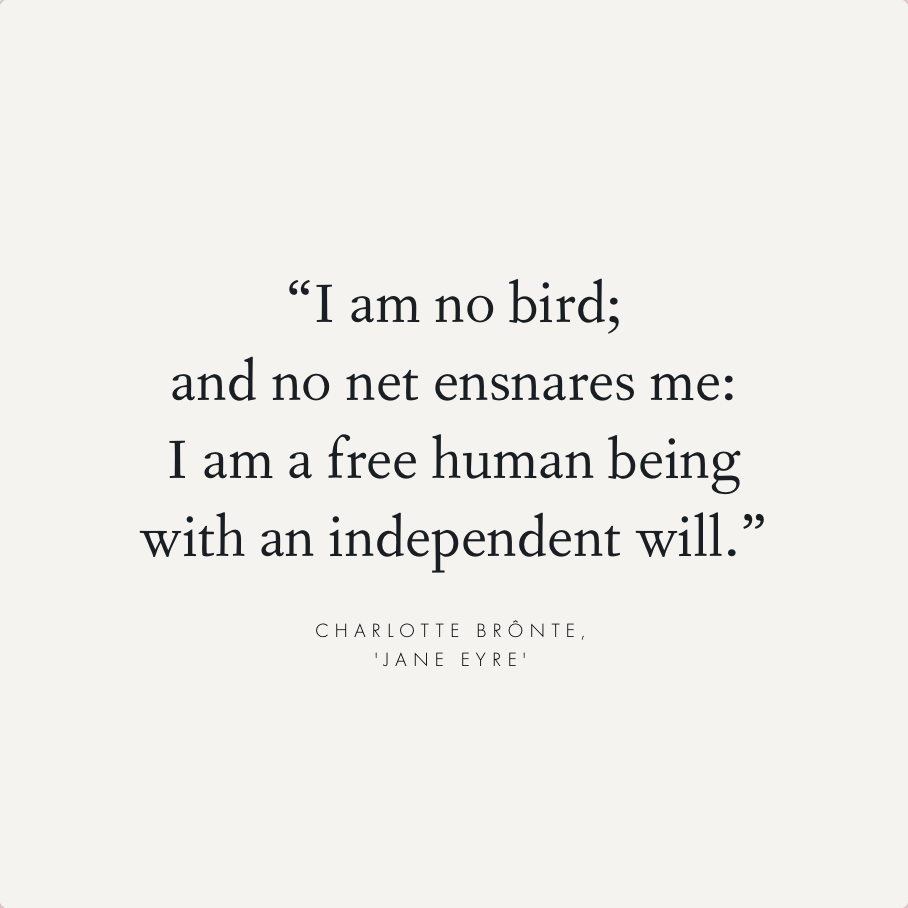
“I am no bird; and no net ensnares me: I am a free human being with an independent will.” ― Charlotte Brontë, Jane Eyre
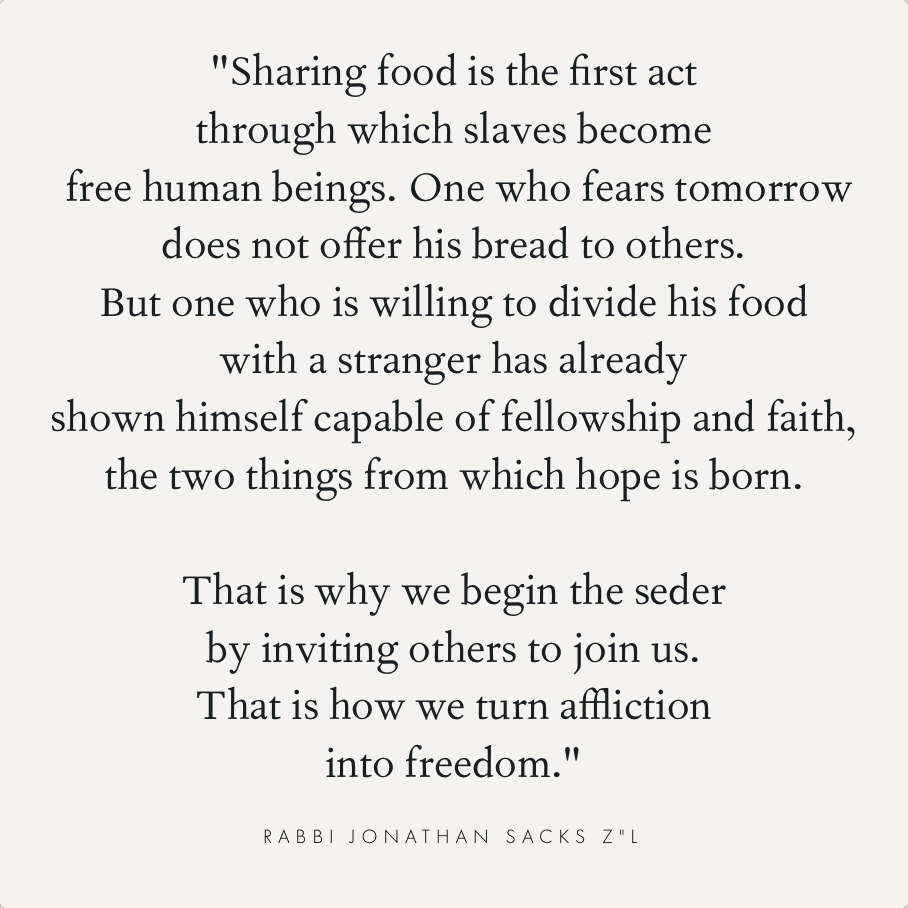
“Sharing food is the first act through which slaves become free human beings. One who fears tomorrow does not offer his bread to others. But one who is willing to divide his food with a stranger has already shown himself capable of fellowship and faith, the two things from which hope is born. That is why we begin the seder by inviting others to join us. That is how we turn affliction into freedom.” —Rabbi Jonathan Sacks z”l
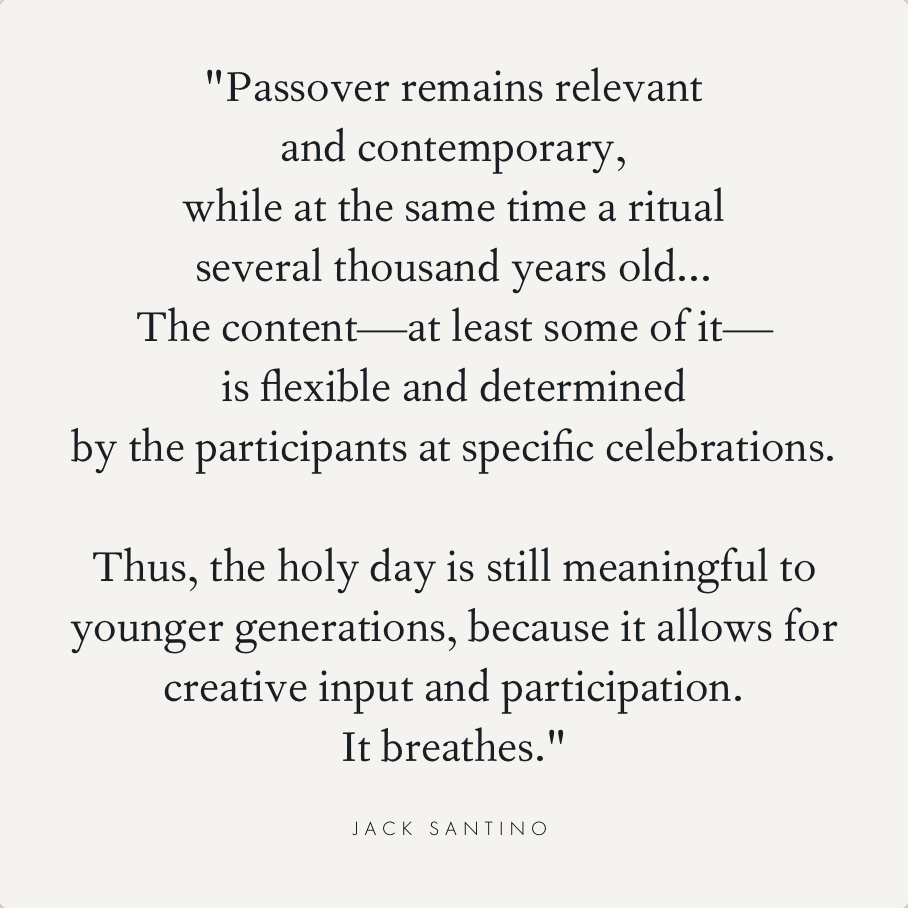
“Passover remains relevant and contemporary, while at the same time a ritual several thousand years old… The content—at least some of it—is flexible and determined by the participants at specific celebrations. Thus, the holy day is still meaningful to younger generations, because it allows for creative input and participation. It breathes.” —Jack Santino, Winter into Spring: Celebrating Rebirth and Renewal, All Around the Year: Holidays and Celebrations in American Life
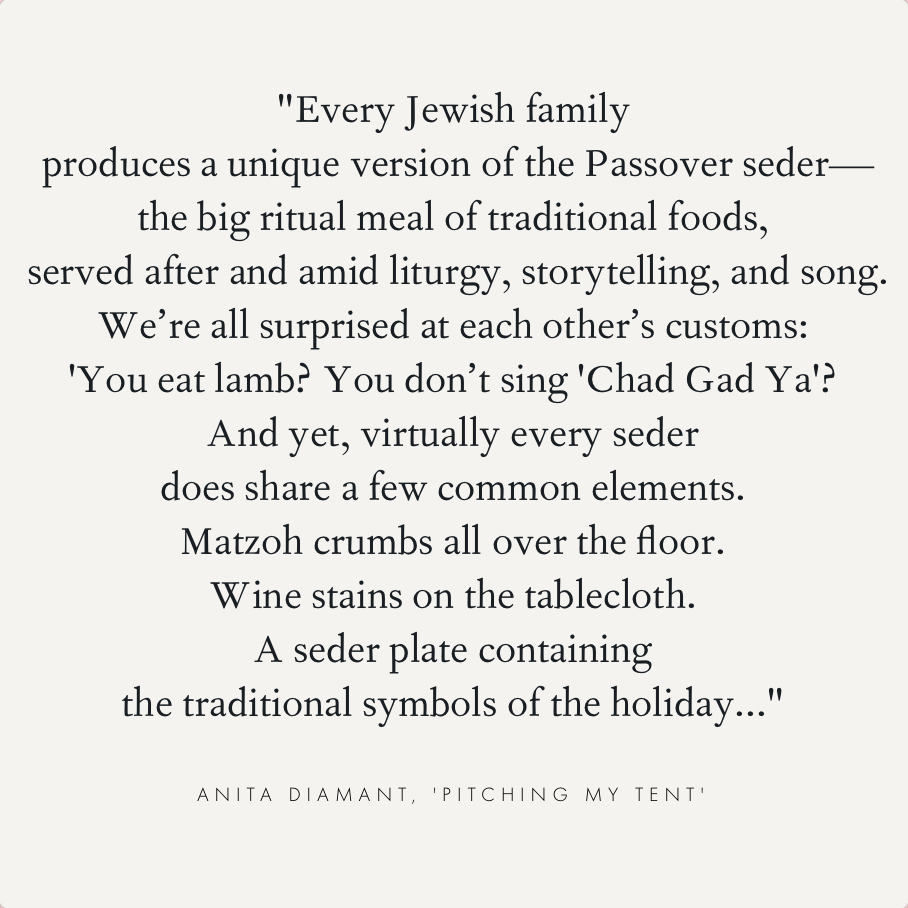
“Every Jewish family produces a unique version of the Passover seder—the big ritual meal of traditional foods, served after and amid liturgy, storytelling, and song. We’re all surprised at each other’s customs: ‘You eat lamb? You don’t sing ‘Chad Gad Ya’? And yet, virtually every seder does share a few common elements. Matzoh crumbs all over the floor. Wine stains on the tablecloth. A seder plate containing the traditional symbols of the holiday: a roasted shank bone and hardboiled egg, recalling the days of the Temple sacrifices; horseradish and salt water for the bitterness of oppression; parsley for spring; haroset, a mixture of wine, nuts, and fruit symbolizing mortar and the heavy labor performed by the Israelite slaves…” —Anita Diamant, Pitching My Tent
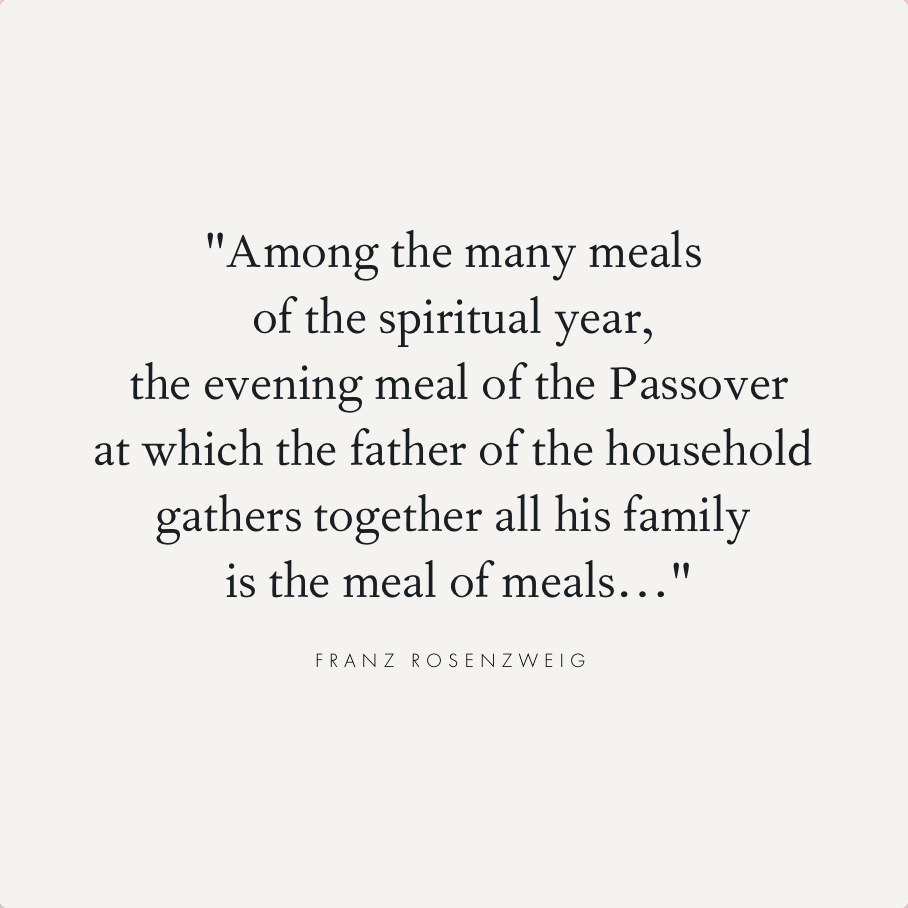
“Among the many meals of the spiritual year, the evening meal of the Passover at which the father of the household gathers together all his family is the meal of meals… The father of the family speaks, the household listens, and only in the further course of the evening is there more and more common independence until, in the songs of praise and the table songs of the second part of the meal, songs which float between divine mystery and the jesting mood begot by wine, the last shred of autocracy in the order of the meal dissolves into community.” —Franz Rosenzweig, as translated by Francis C. Golffing
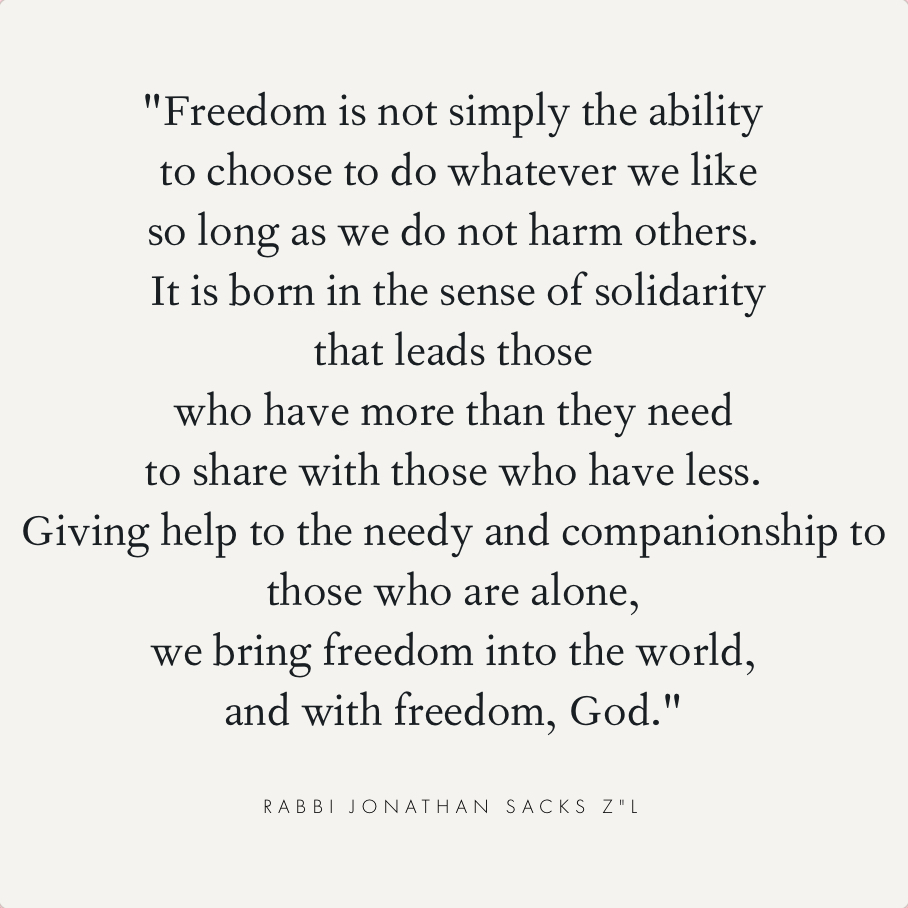
“Freedom is not simply the ability to choose to do whatever we like so long as we do not harm others. It is born in the sense of solidarity that leads those who have more than they need to share with those who have less. Giving help to the needy and companionship to those who are alone, we bring freedom into the world, and with freedom, God.” —Rabbi Jonathan Sacks z”l
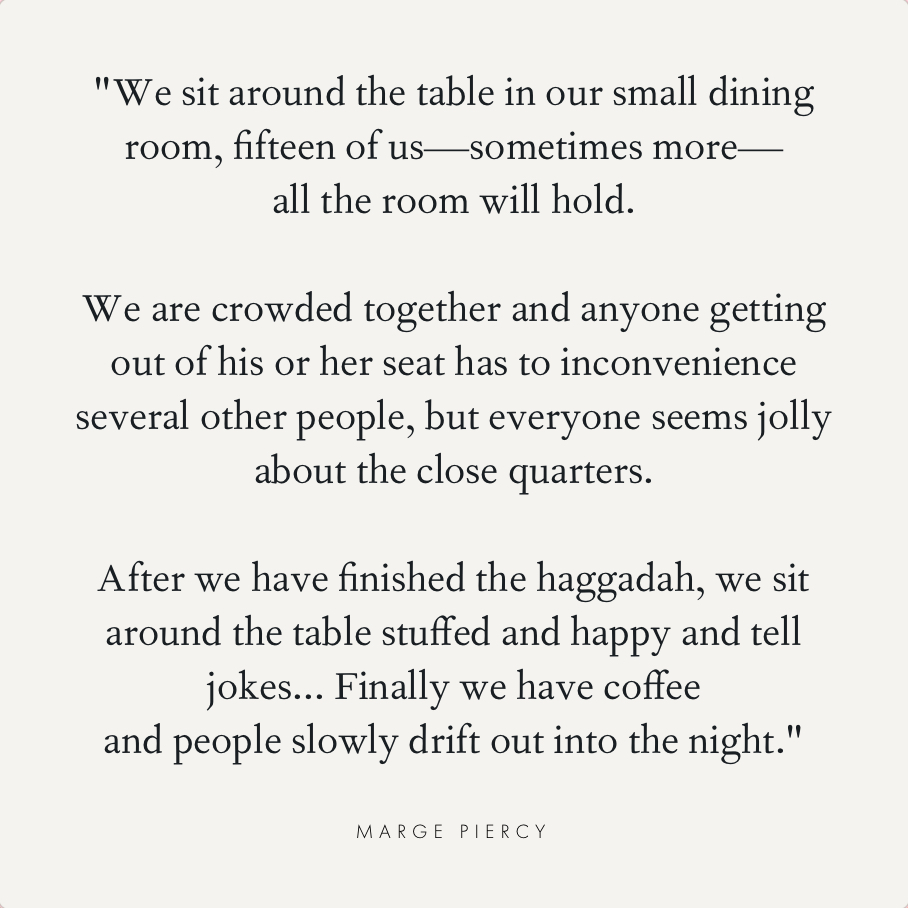
“We sit around the table in our small dining room, fifteen of us –sometimes more—all the room will hold. We are crowded together and anyone getting out of his or her seat has to inconvenience several other people, but everyone seems jolly about the close quarters. After we have finished the haggadah, we sit around the table stuffed and happy and tell jokes. Everyone tries to come up with new jokes for the seder, including the kids. Some of us are great natural comics, but some, like me, cannot remember a joke unless we write it down. I think I have mastered a total of six jokes in my lifetime, and that could be an overestimate. Finally we have coffee and people slowly drift out into the night.” —Marge Piercy, Pesach for the Rest of Us
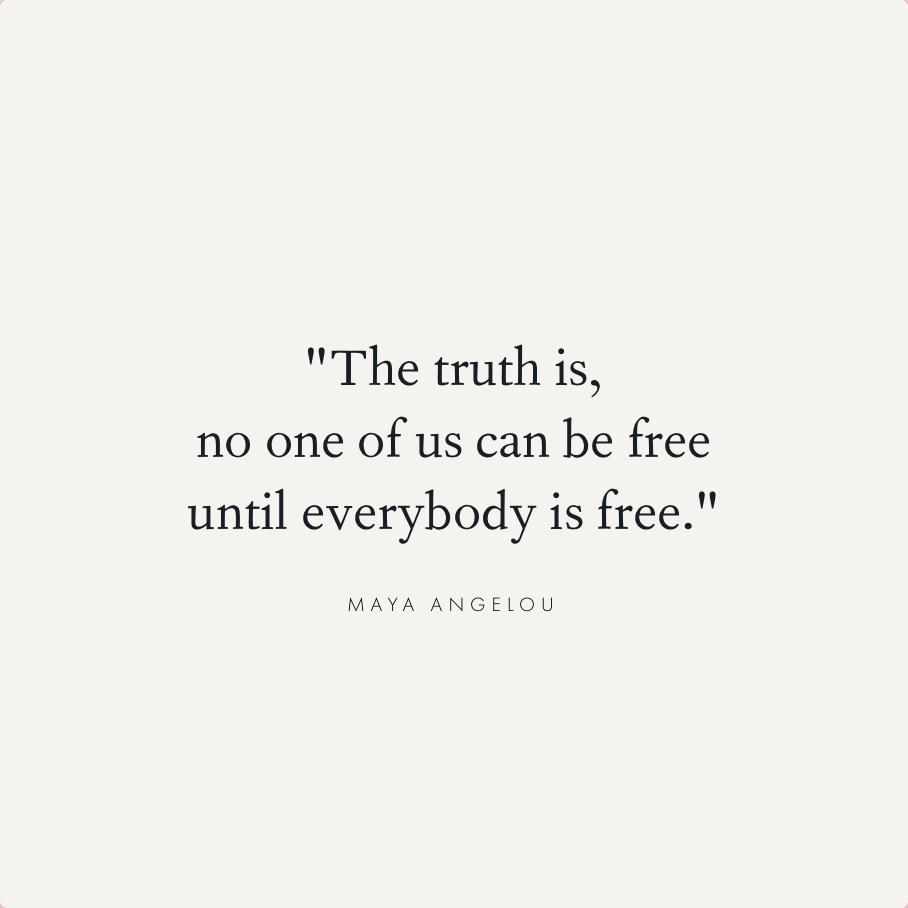
“The truth is, no one of us can be free until everybody is free.” —Maya Angelou
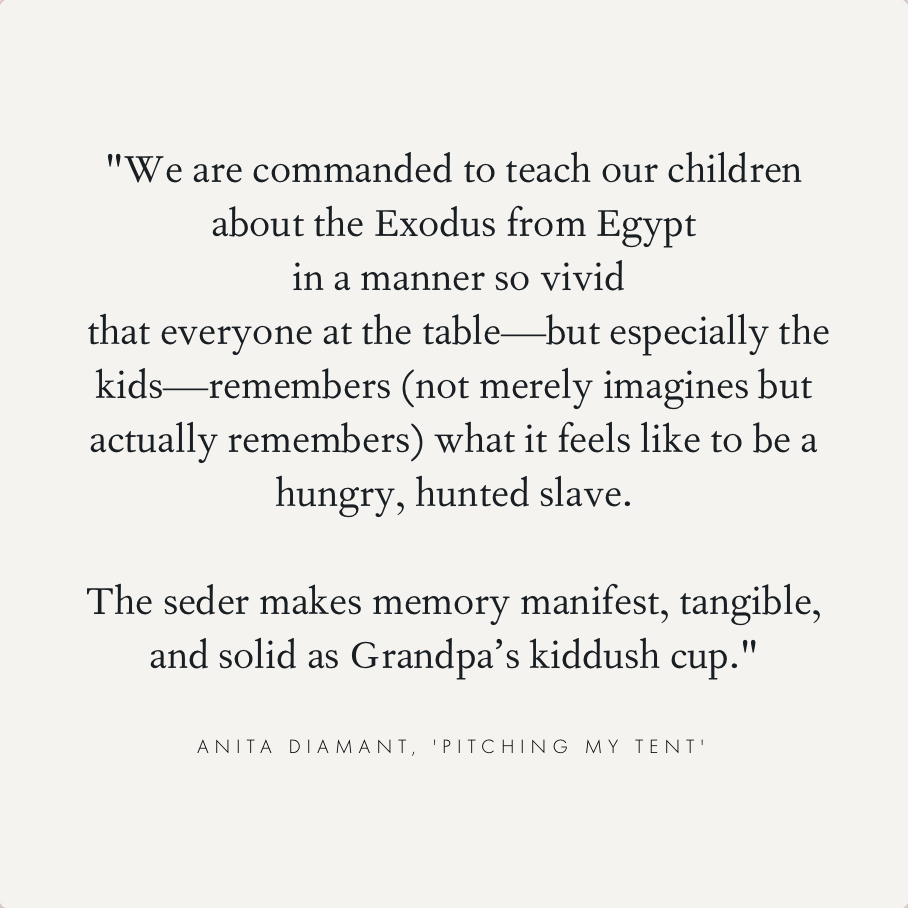
“We are commanded to teach our children about the Exodus from Egypt in a manner so vivid that everyone at the table—but especially the kids—remembers (not merely imagines but actually remembers) what it feels like to be a hungry, hunted slave. The seder makes memory manifest, tangible, and solid as Grandpa’s kiddush cup.” —Anita Diamant, Pitching My Tent
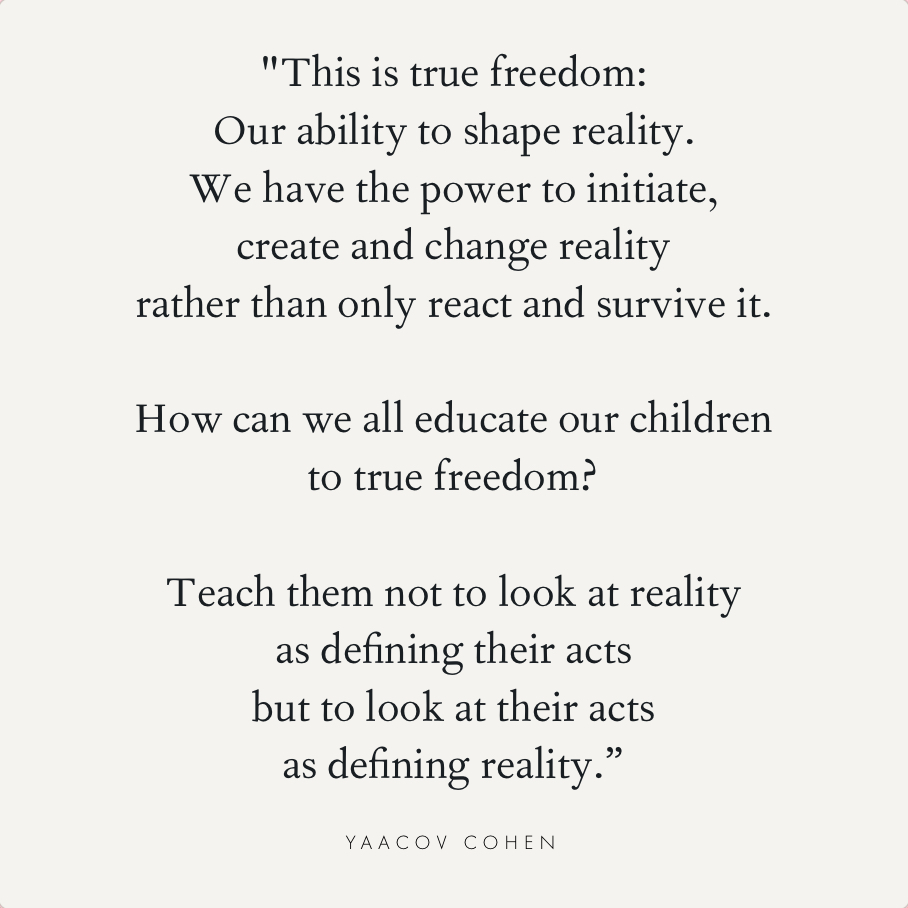
“This is true freedom: Our ability to shape reality. We have the power to initiate, create and change reality rather than only react and survive it. How can we all educate our children to true freedom? Teach them not to look at reality as defining their acts but to look at their acts as defining reality.” —Yaacov Cohen
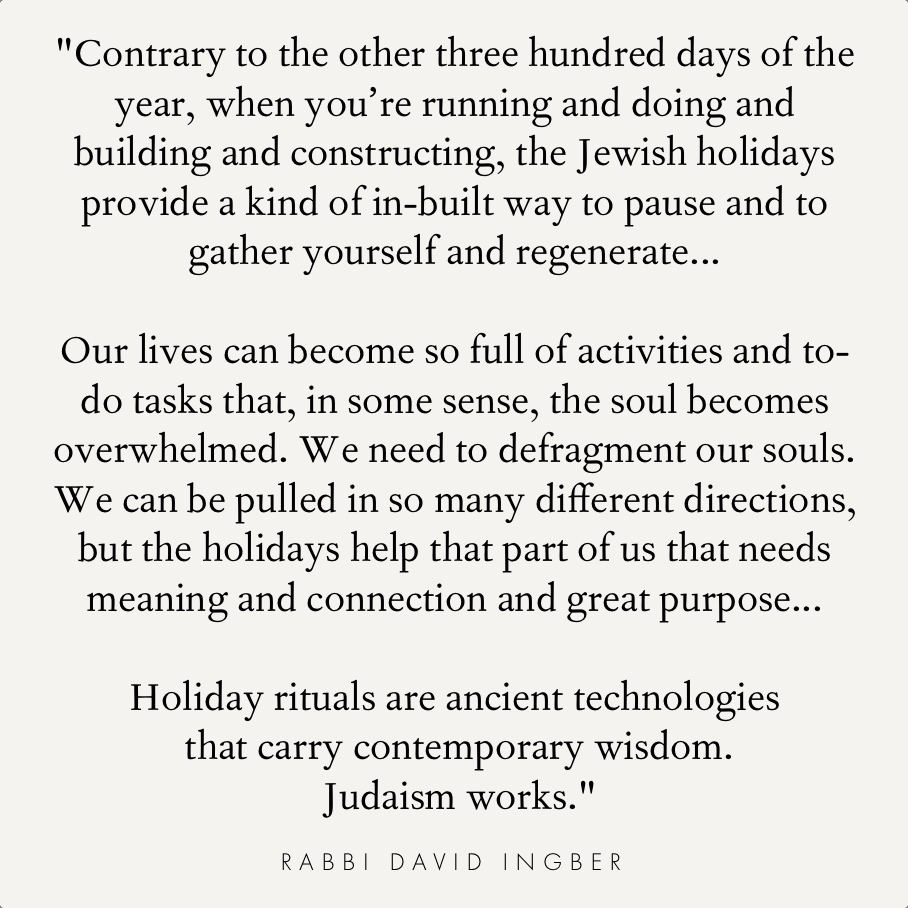
“Contrary to the other three hundred days of the year, when you’re running and doing and building and constructing, the Jewish holidays provide a kind of in-built way to pause and to gather yourself and regenerate… Our lives can become so full of activities and to-do tasks that, in some sense, the soul becomes overwhelmed. We need to defragment our souls. We can be pulled in so many different directions, but the holidays help that part of us that needs meaning and connection and great purpose… Holiday rituals are ancient technologies that carry contemporary wisdom. Judaism works.” —Rabbi David Ingber, as quoted in My Jewish Year by Abigail Pogrebin
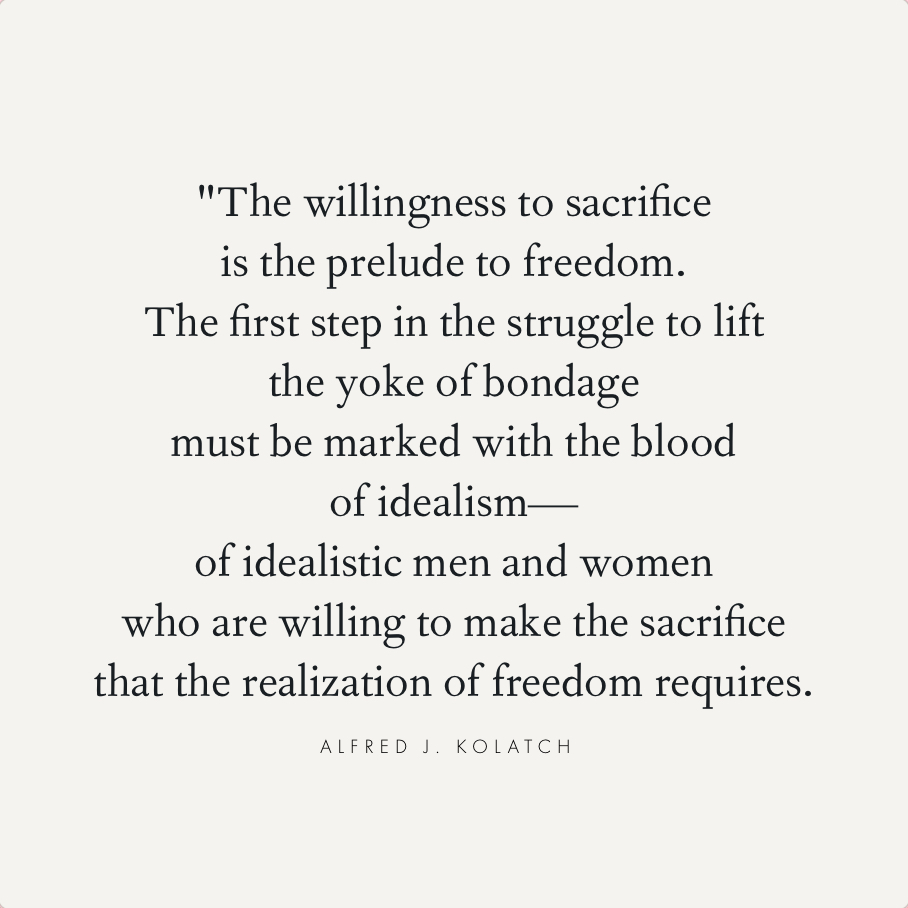
“The willingness to sacrifice is the prelude to freedom. The first step in the struggle to lift the yoke of bondage must be marked with the blood of idealism—of idealistic men and women who are willing to make the sacrifice that the realization of freedom requires. Liberty is not achieved by complacency; it is not won without suffering the scars of battle. It is accomplished by selflessness and sacrifice; it is won by courageous action.” —Alfred J. Kolatch, The Family Seder: A Traditional Passover Haggadah for the Modern Home
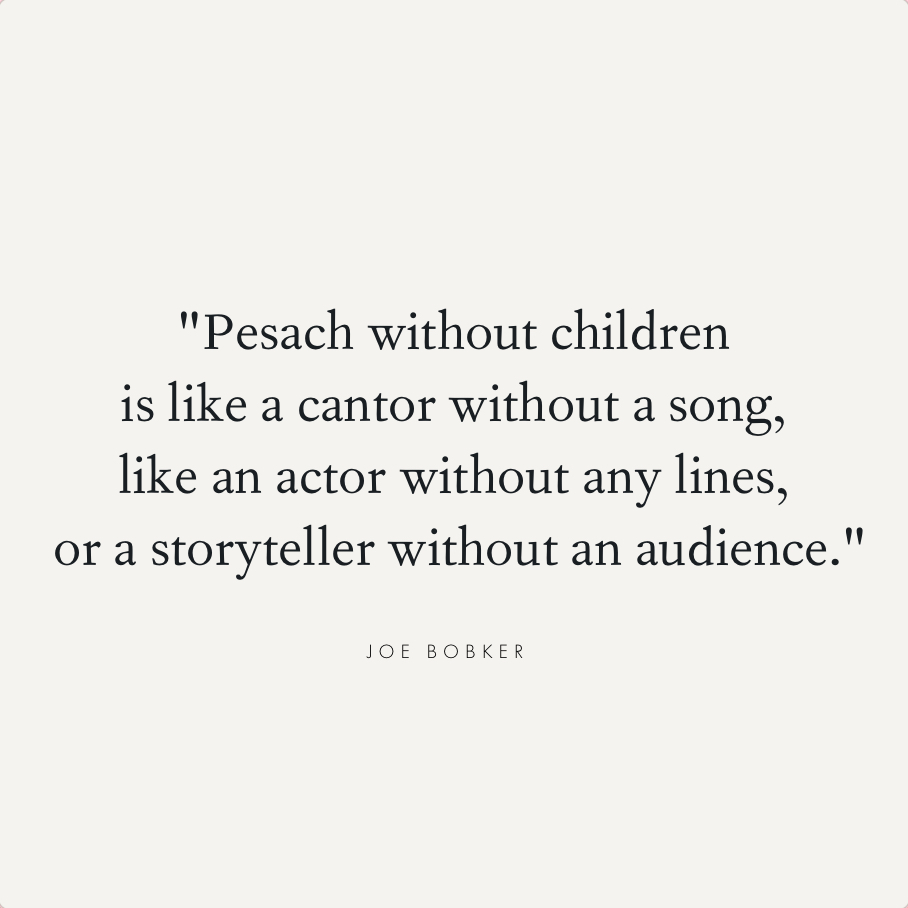
“Pesach without children is like a cantor without a song, like an actor without any lines, or a storyteller without an audience.” —Joe Bobker, And You Thought There Were Only Four: 400 Questions to Make Your Seder Enlightening, Educational and Enjoyable
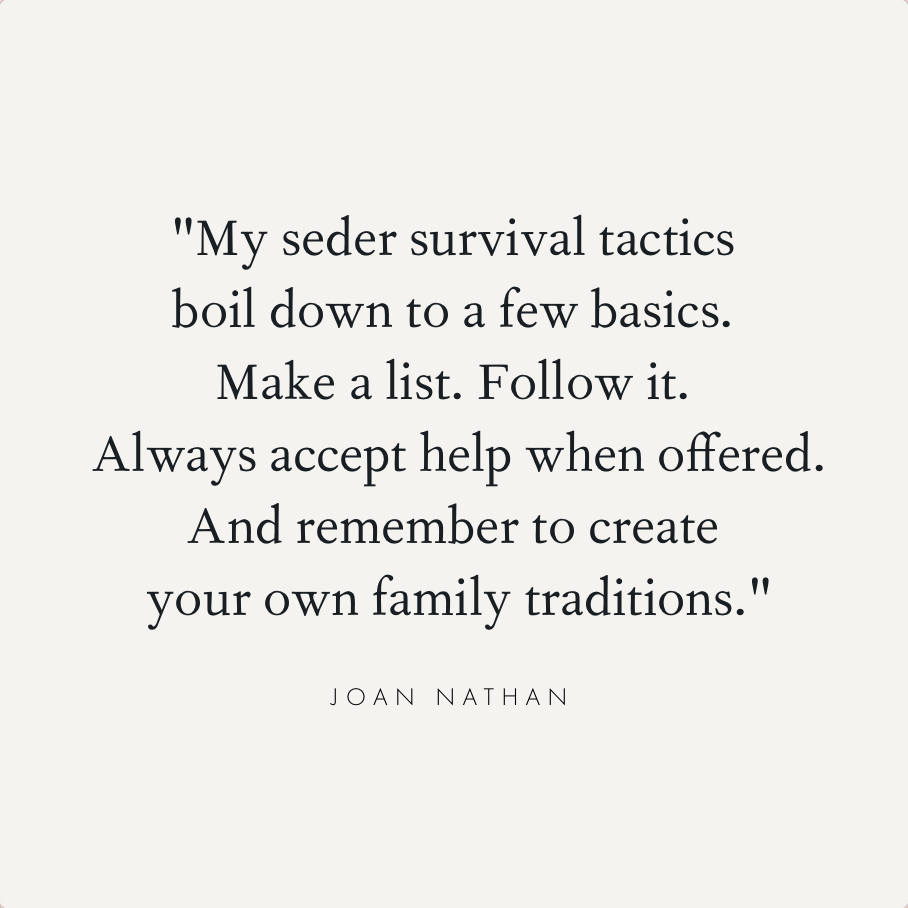
“My seder survival tactics boil down to a few basics. Make a list. Follow it. Always accept help when offered. And remember to create your own family traditions.” —Joan Nathan
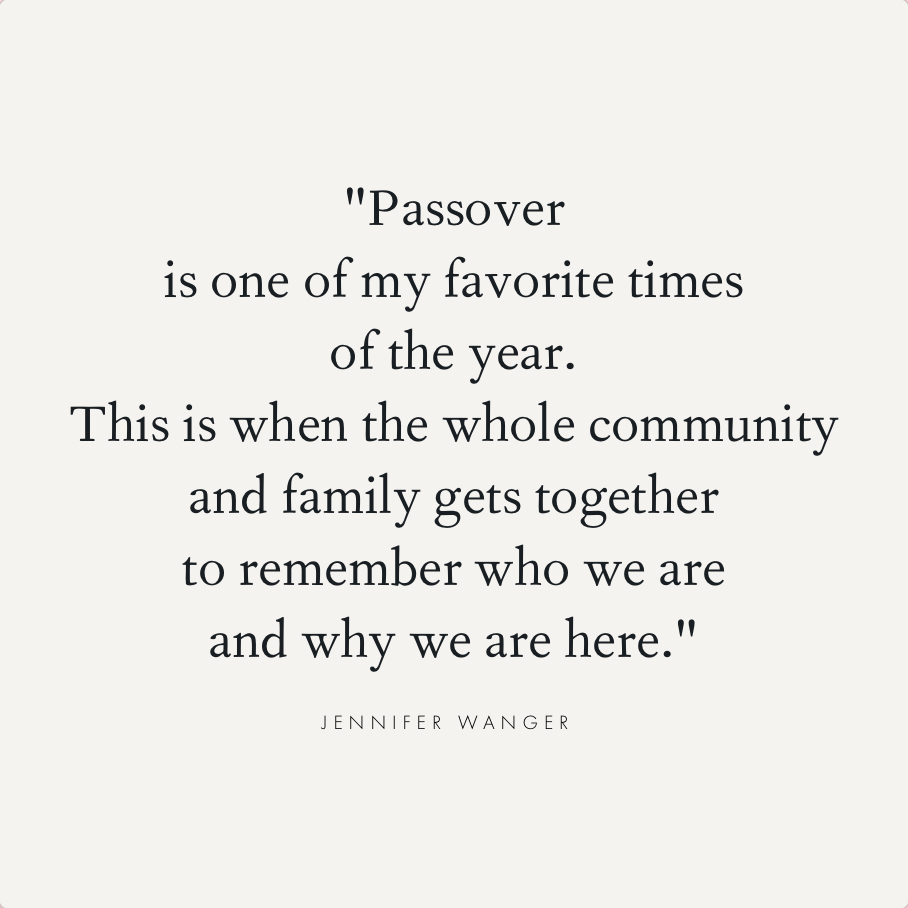
“Passover is one of my favorite times of the year. This is when the whole community and family gets together to remember who we are and why we are here.” —Jennifer Wanger
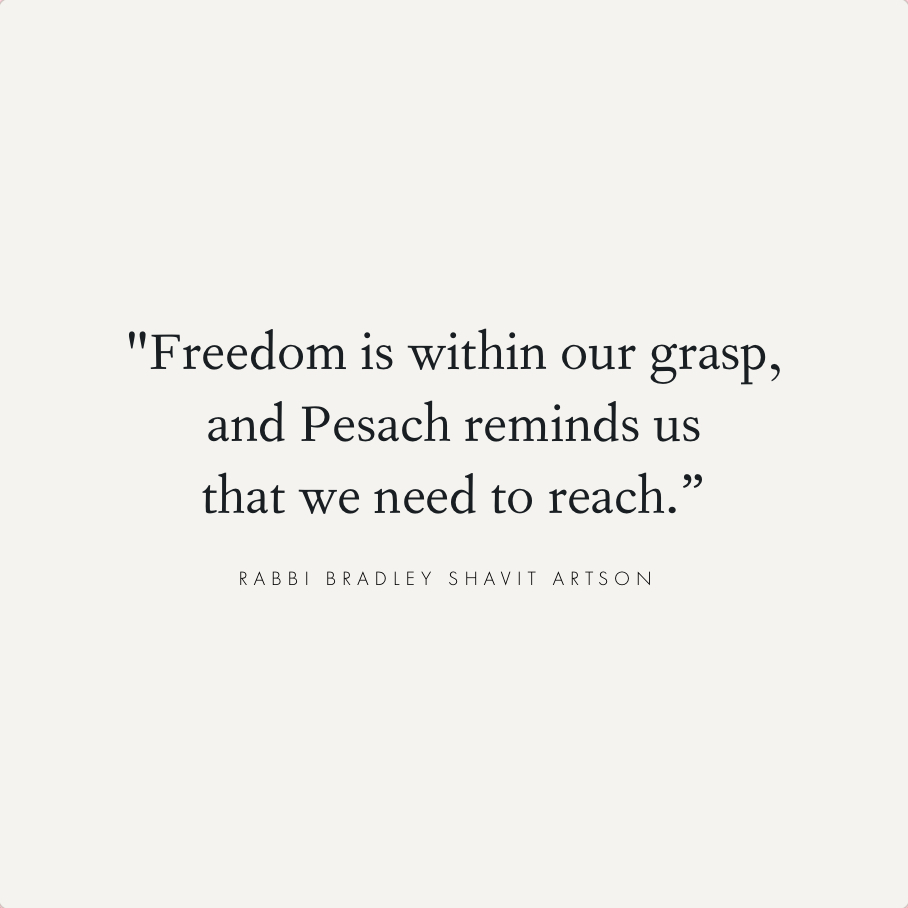
“Freedom is within our grasp, and Pesach reminds us that we need to reach.” —Rabbi Bradley Shavit Artson
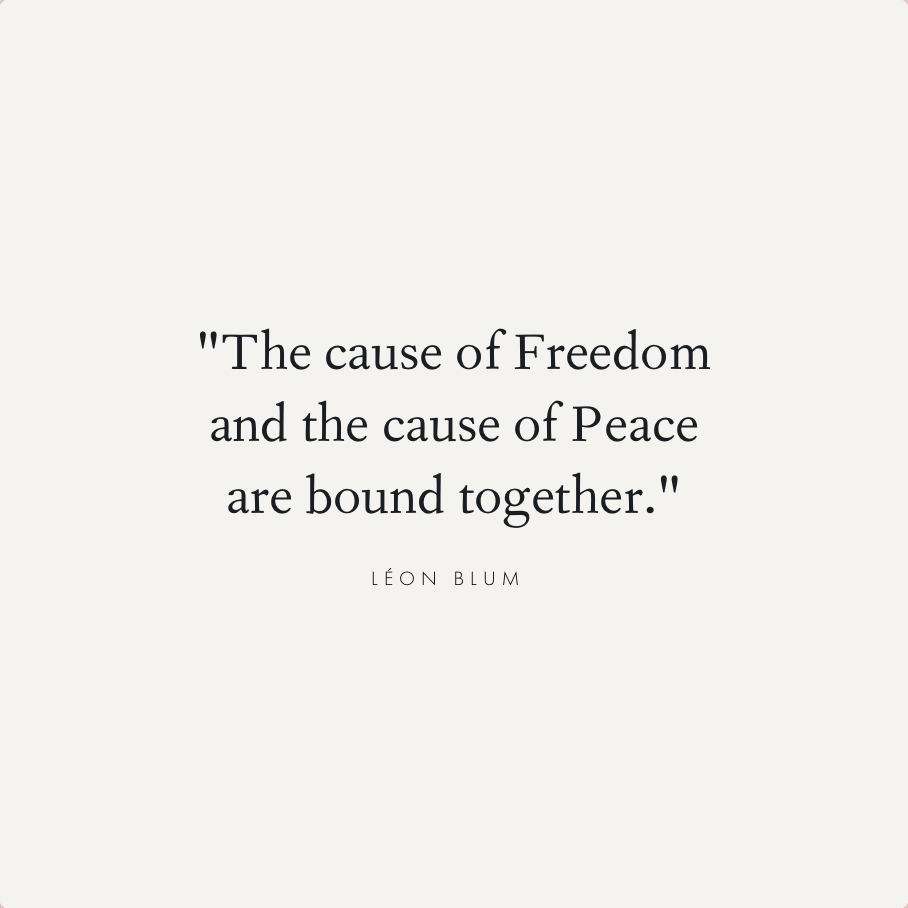
“The cause of Freedom and the cause of Peace are bound together.” —Léon Blum
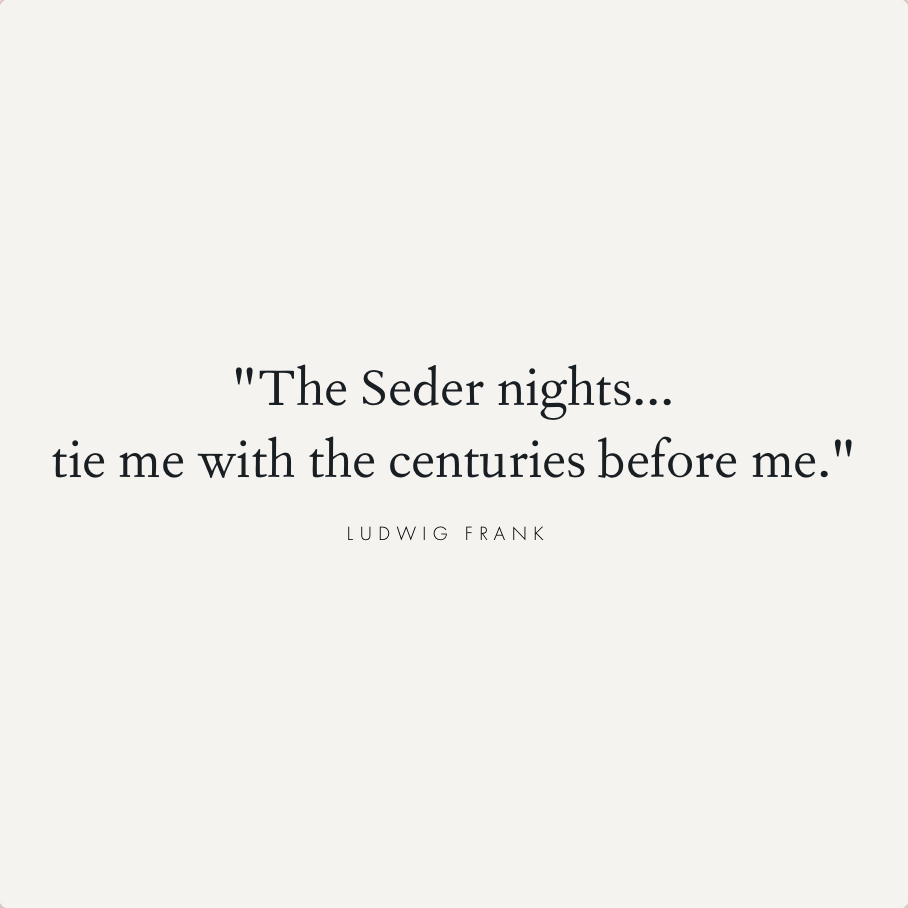
“The Seder nights… tie me with the centuries before me.” —Ludwig Frank

Wow amazing quotes! Found you from EHD, so glad you are there sharing!
thank you so much, Vera! <3 so happy to have you here!!
Such beAUTIFUL words that have this deep and meaningful resonance!
Absolutely beautiful material. Thanks for sharing … written between my tears
Bob
Thank you for the beautiful quotes!